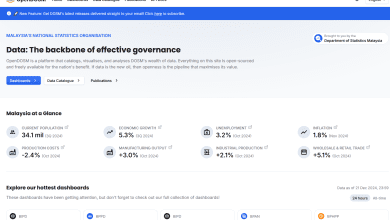UPSR – A Lesson in Cheating
By Mariam Mokhtar


On April 1, 2012 (April Fool’s Day), The Star reported that Education Minister Muhyiddin Yassin had dismissed his critics and said that Malaysia was ranked 14th among 142 countries, and second in Asean for quality education. The report said that Malaysian students received a better standard of education than their peers in America, Britain and Germany.
In mid-September 2014, our education system came under severe threat. After they had sat their English papers, the students were told that the exam had been cancelled. Worse news followed. The Science paper, which was scheduled for the morning of Thursday September 11, had to be postponed to September 30, as questions from the paper had been posted on social media websites. The students were also told they would have to sit the previously compromised English exam, on September 30.
Various students and teachers were approached for their comments about this latest scandal. Many confided that the leak of examination papers is not a new occurrence. If they are to be believed, the claim that leaks happen on an annual basis must be treated seriously.
According to one retired teacher, “Malaysians have the habit of attending to the current emergency without making plans to prevent a recurrence. It is not just the integrity of the exam system which is at stake, the repeated leaks point to the integrity of the ministry.”
The Home Minister, Ahmad Zahi Hamidi, appeared to discount the involvement of syndicates in the exam leaks. Several individuals were reportedly detained and Zahid said, “…from information obtained by the police, they are involved in the education field at the primary school level. Based on this information, it (leaks) involves only individuals, but possibly with networking among them.”
Zahid warned that more arrests would follow and that the police were trying to ascertain if the people who had been arrested, had also been responsible for the leaks, in previous years.
By September 20 (when this article was written), statements had been recorded from 18 people, and 12 arrests had been made. The captured included 10 teachers, an insurance agent and an engineer.


Another concerned mother said, “Someone is making money out of this scandal. If anyone is caught, I would not be surprised if the big fish are allowed to escape. It just shows the gaping holes in security and how a lack of enforcement allows cheating to occur on a widespread scale. Not just this year, but in previous years.”
One student was worried that some students, with access to the leaked questions, had an unfair advantage. She said that she and her peers had been traumatised by the leaks. “We worked hard towards the UPSR. Preparing and sitting for the exams is already stressful. Having to take it again places more pressure on us. It feels like one exam after another without any breaks.”
One teacher said, “If there was a grade comparison of their exam results with their daily work, some pupils may be suspected of having cheated and then failed, because of the leaks. Is that fair?”
On September 20, Hashim Adnan, the president of The National Union of the Teaching Profession (NUTP) said that it would not assist any of its members found guilty of leaking the recent UPSR examination papers. He said, “Here in NUTP, we have our stand, those found guilty are guilty.”
One parent said, “If only the NUTP would extend their reach and demand that someone in authority is made accountable, and held responsible. Only then will we know that the authorities are serious.”
A cynical primary school teacher said, “By the end of September, the leak would have been forgotten. For now, investigations will be carried out, to satisfy the parents and the angry public. The various ministers and the police will appear to be taking action. Next year, expect more of the same.”
His friend said, “The leaks are embarrassing. There are many weak points, which are possibly interrelated. The teachers who drafted the questions, the printers, the people in the ministry. This year’s leak was very obvious. It is so sad that we may mistrust the student who has achieved a string of As.”


